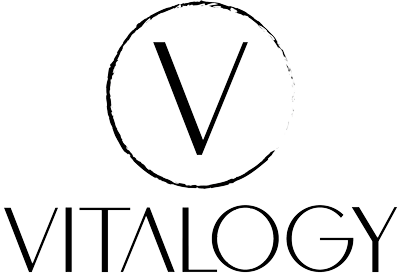You’ve been feeling off lately. Maybe you’re sad for no clear reason. Maybe you’re exhausted even after a full night’s sleep, or your brain feels foggy during important conversations. You may have started to wonder if you’re depressed, and if you’ve brought it up to your doctor, you might have left with a prescription for an antidepressant. But what if depression isn’t the full picture?
Many symptoms of depression, such as fatigue, anxiety, brain fog, and low motivation, can also be caused by hormonal imbalances. At Vitalogy Health and Integrative Medicine in Denver, we help patients uncover the root causes of their mental and physical health concerns. In this article, we’ll explore the link between hormone imbalances and depression-like symptoms and explain how hormone replacement therapy (HRT) may help restore your energy and emotional well-being.
How imbalances can lead to symptoms of depression
Hormones are chemical messengers that help regulate mood, energy levels, sleep patterns, and cognitive function. When your hormones are balanced, your body and mind tend to function smoothly, and you feel emotionally steady, mentally sharp, and well. But when key hormones fall out of balance, it can trigger symptoms that are easily mistaken for clinical depression. If your mood and energy have changed, the root cause may be hormonal, not psychological.

Hormone imbalances that may cause symptoms of depression
Thyroid dysfunction
Your thyroid regulates metabolism and energy production. Hypothyroidism (underactive thyroid) can lead to symptoms like fatigue, brain fog, and depressed mood. It’s a common hormonal cause of depression and often goes undiagnosed, especially in women.
Estrogen imbalance
Estrogen helps regulate the neurotransmitters (serotonin, dopamine, and GABA) essential for maintaining mood stability. Drops in estrogen, such as those during perimenopause or after childbirth, are linked to increased risk for depression. This is often the driving factor behind postpartum depression and mood changes during menopause.
Low progesterone
Progesterone is often referred to as the “relaxation hormone.” When levels are too low, you may experience anxiety, irritability, or trouble sleeping. This imbalance can mimic or exacerbate depression, particularly in women with PMS or PMDD.
Testosterone deficiency
Although often associated with men, testosterone is vital for both men and women. Low testosterone can lead to fatigue, low motivation, reduced mental clarity, and mood instability. These symptoms often resemble depression, especially in aging men and women in midlife.
Elevated cortisol
Cortisol is the stress hormone produced by your adrenal glands. Chronically high cortisol, often due to prolonged stress, can interfere with the balance of other hormones and contribute to anxiety, sleep issues, and depressive symptoms.

When to consider hormone replacement therapy
Hormone replacement therapy (HRT) is a treatment that supplements your body’s natural hormone levels using bioidentical or synthetic hormones. It aims to help restore hormonal balance and relieve symptoms caused by hormone deficiencies or fluctuations.
At Vitalogy, we offer personalized HRT plans based on comprehensive hormone testing, lifestyle factors, and your needs. HRT may be a powerful alternative or complement to antidepressants when hormonal imbalance is the true source of your symptoms.
You should consider hormone replacement therapy in the following situations:
- You’ve tried antidepressants without success: If you’ve cycled through antidepressants without real relief, it may be time to look deeper. Hormone testing can reveal whether imbalances are driving your symptoms, making HRT a more effective solution.
- You have mood symptoms tied to your cycle: Do your symptoms worsen before your period or during menopause? These are signs of hormonal depression. HRT can help stabilize mood swings by replenishing estrogen and/or progesterone.
- You’re dealing with fatigue, brain fog, or low libido: These symptoms often go hand in hand with mood disorders, and they’re classic signs of hormone imbalances. HRT can help you feel like yourself again by restoring energy and mental clarity.
- You have a history of thyroid or adrenal issues: If you’ve ever been diagnosed with hypothyroidism, adrenal fatigue, or cortisol imbalances, you’re more likely to experience hormone-related depression. In these cases, HRT may correct the underlying issue and improve your emotional well-being.
Feeling down doesn’t always mean you’re clinically depressed. Hormonal imbalances can profoundly affect your mood, motivation, and mental clarity, often in ways that mimic depression. Unfortunately, these imbalances are frequently overlooked in traditional evaluations, leading many people to rely on antidepressants without getting to the root cause.
At Vitalogy Health and Integrative Medicine in Denver, we take a deeper, more holistic approach. We use advanced hormone testing and personalized treatment plans, including bioidentical hormone replacement therapy, to help you restore balance, improve your mental health, and reclaim your vitality. If you’re tired of feeling unlike yourself, schedule a consultation to find out whether hormone imbalances are contributing to your symptoms and how HRT may help you feel like yourself again.



